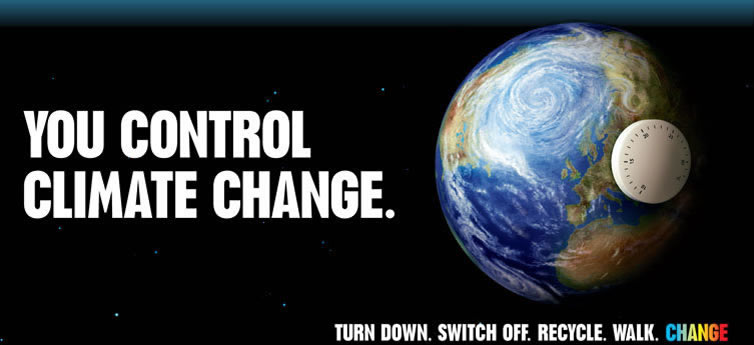We live on Lifeboat Earth. Our sea is the Universe. To be ignorant of this is to ignore the potential consequences of our bad behavior and its impact on the boat. We have to stop putting spikes in the bottom of it otherwise we will eventually sink. Instead we need to protect every square centimeter, husbanding all our on board resources and ensuring we survive the journey.
This thought came to me yesterday as I sat down to write my blog posting for the day. But I couldn’t quite get started so I left it overnight and have come back to it this morning fortified by a bout of exercise digging out from our first winter snowfall here in Toronto.
I thought the best way to begin the subject of New Year’s Resolutions for Lifeboat Earth would be to put it in context. When I was born in 1949 we had yet to send a rocket into low-Earth orbit. Now 63 years later we have our first human-built ambassador on its way to another star. I’m talking about Voyager-1, the robotic spacecraft that is about to leave our solar system for good and enter interstellar space on a 70,000-year voyage to a nearby star. Think of it, Voyager, one of the fastest objects we have ever sent into space must travel that amount of time just to get to our next door neighbour in our galaxy. It should make you think about just how isolated we are here on our lifeboat in the ocean of the stars.
Some of you may argue that we are not so isolated. After all we can get to Mars and the Moon, or even one-day terraform a Jovian moon like Europa to make it habitable for humans. We may even be able to encapsulate all the essentials of life in a human-built closed environment and place it in space where it will become self-sustaining. Others will argue it is only a matter of time before we develop propulsion systems that will make visiting a neighboring star much less onerous, not 70,000 years but maybe 100. And there we will find new planets in Goldilocks zones suitable for us to continue as a species.
These are the wonderful dreams of futurists but there is another likely scenario. If we continue to treat Lifeboat Earth in the cavalier manner of today, When another intelligent species finally encounters Voyager with on-board message of greeting from Earth, should they choose to come visit, they will probably arrive at a planet vastly altered through our negligence with our species and so many others extinct.
On Christmas Day as I walked my dog Maya, I encountered another dog owner, a retired engineer, and out of the blue as we watched our dogs interact he asked me “do you think we will survive as a species on this planet?” This is not a typical conversation for me on walks on any day including Christmas, but the conversation got me thinking about resolutions to ensure our survival and it seems there is no time like the present to state them. So here are what I believe should be our resolutions for 2013 on Lifeboat Earth.
Seven New Year’s Resolutions for Our Planet in 2013
1. We must take personal responsibility for improving the condition of our lifeboat. We owe it to future generations and to the rest of the travelers accompanying us on the ride. What does personal responsibility entail? For those in the Developed World we need to look at consumption. How can we conserve, reduce and manage a quality of life commensurate with our expectations? Below is an image of conspicuous consumption and the types of challenges and choices we face. Home ownership is the dream of most of us. And in my neighborhood, built largely just before and after World War II, people who want their own homes are buying bungalows (like the home on the left in the picture below), tearing them down and putting up monster homes (the house on the right). Monster homes require more energy to heat and cool, have footprints that absorb more solar radiation in the summer contributing to the city heat island effect, reduce green space and the urban forest canopy, and feature multi-vehicle garages which encourage owners to fill them with even more automobiles. And with the size of the footprint and all the roof space these homes have very few are implementing renewable energy technologies such as solar, or geothermal, ending up increasing the use of fossil fuels for heating and cooling. Not a sustainable lifeboat strategy for the planet.
2. Collectively we need to force our governments to take action on sustainability. Today more than ever we have the means through mass communications to organize around causes and there is no better one that the cause of Lifeboat Earth and its sustainability. Whether you choose to work through existing political groups (something I have chosen to do), community and religious groups, or join one of the many online, actions will speak louder than words. And we need to empower government through our prodding to enact green policies.
3. We need to move beyond Kyoto and institute carbon policies that all of us are prepared to follow. Right now the world’s nations are waiting around until 2015 before re-addressing the issue. This is simply the act of inaction and if I may say so, “crazy.” Cap and trade has worked in the past for us in dealing with environmental risks. Why do we continue to kick the problem down the road putting our children’s children and the rest of life on the planet at risk?
4. We need to stop inhibiting our scientific and technological progress? Whether we do this for religious reasons, or out of “frankenfear,” we are doing a disservice to Lifeboat Earth when we blindly push back against invention and innovation. Take for example GMO technology. Many of us, including some scientists, believe that genetically modified food crops are a cancer risk even though we have been modifying plants and animals for thousands of years, just not at the DNA level. But somehow instead of cross breeding plant strains, when we impart drought resistance to a food crop by infusing new genetic material into the plant we raise the specter of “frankenfoods.” I’m sure that those who buy organic foods will take umbrage at the point I am raising. But I too buy organic foods as well as a lot of GMO foods because we have, as a species, become dependent on this type of biotechnology to increase crop yields even in the face of a changing environment.
5. We need to harness the technologies we develop for inflicting death and make them useful for improving life. So much of our investment in science these days supports war. It seems since President Eisenhower first warned us about the military-industrial complex that we have been fighting a losing battle against the forces of war defining our technological progress. On a lifeboat we have a choice of pushing our neighbor overboard to save ourselves or cooperating with him or her to sustain both of us. As much as I write about DARPA-funded technological innovation I find it painful to think that advancement is coming at the “end of a gun.” And we ultimately know the purpose of guns.
6. We need a lot more X prizes and other new ways of inspiring invention. Two of these are crowdsourcing to fund projects and crowd solving to get masses of people involved in tackling intransigent problems. I recently wrote about the GravityLight, a project that was entirely funded through an Internet crowdsourcing site. You can experience the power of crowd solving related to a specific scientific problem by playing Phylo, an online game designed to solve complex problems in the study of DNA. This is a future path for harvesting the collective consciousness of the 7 billion humans on this planet.
7. We need to harvest the creativity that is so much a part of being young. We have to do this by altering the way we teach, moving from teacher-centric to student-centered learning. If that means a generational change from the teachers of today to new, young teachers who have grown up with the Internet and smartphones, so be it. It is time to begin a succession strategy that impels humanity forward to a sustainable end in this century for all of us riding in the lifeboat.






















